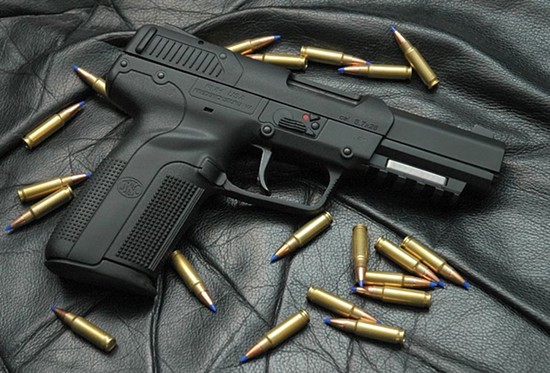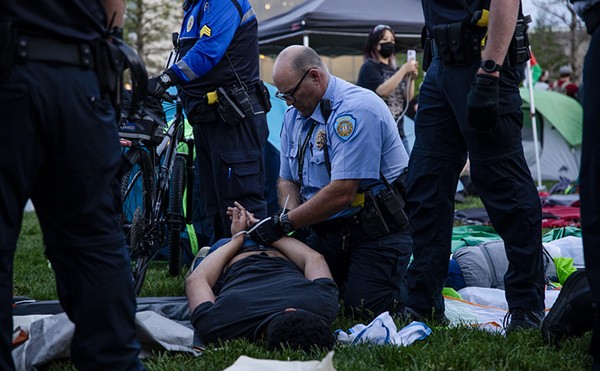Last week, St. Louis mayor Francis Slay once again promoted the "extraordinary opportunity to reduce gun violence" in the city that he and his staff have been working on for more than a year.
The idea is to create an "armed offender docket" in the St. Louis City Circuit Court, through which dedicated judges would oversee the prosecution of gun crimes from arraignment to sentencing and beyond. Slay, who has the backing of the St. Louis Circuit Attorney's Office and the Metropolitan Police Department, is now trying to drum up support from the officials who have the authority to make this a reality: the judges.
On September 16, St. Louis Circuit Court judges will decide whether to adopt and implement this armed offender docket idea, and Philip Heagney, the presiding judge, has now written a formal letter to the mayor explaining his lingering concerns.
See also: - Gun Docket: Can the Courts Do a Better Job of Prosecuting Weapons Offenses? - 6-Year-Old Boy Accidentally Shoots Leonard Smith, 11, in Belleville - Mayor Francis Slay Promotes "Extraordinary Opportunity to Reduce Gun Violence"
Heagney's commentary, released on Monday and on view below, is a response to a letter Slay penned earlier this month, asking the judge to offer details on specific problems he sees with the proposed gun docket reform.
Supporters of the measure -- a form of which was introduced by state lawmakers this past legislative session in Missouri (but did not pass) -- argue that the city can reduce gun violence through a more calculated approach in the courtroom.
A docket devoted to this class of crimes, the mayor's office says, would allow court officials to track trends, better tackle the problem of illegal guns and provide appropriate sentencing that would help address the problem of repeat offenders.
Heagney, however, still has his doubts, largely regarding the court's limited resources.
He says, "In order for a specialized armed offenders docket to have any effect over and above the benefits that come from the Court's existing felony criminal docket operation, the armed offender docket will have to move more quickly and require greater adherence to a strict schedule that has been possible with the regular docket."
Slay's office meanwhile is still optimistic that these problems can be resolved.
Here are select excerpts of the problems regarding the day-to-day operations that must be resolved, according to Heagney:
- "There will be an increase in the transportation of confined defendants to and from the courthouse for repeated appearances..."- "The resources for pretrial release will have to be improved. At present, two private companies...provide pretrial supervision for defendants who can afford to make bond and can afford to pay for private supervision services. The armed offender docket will require supervision for all defendants on bond and will require greater supervision for these defendants."
- "Both assistant circuit attorneys and defense attorneys will have to be available in the armed offender docket courtrooms more often and more regularly than is the case with Division 16's felony trial docket..."
- Required "Sentencing Assessment Reports" outlined in the proposal will "increase the workload for the Probation Office that provides pre-sentencing reports to the Court."
- "The need for more intensive probation review will create availability and scheduling problems."
- If an armed offender docket judge is regularly handling "robbery 1st degree trials, that judge will not be able to handle the variety of other work that she/he will need to do to keep the armed offender docket running."
Continue for response from the mayor's office, the full document and Slay's original letter.







